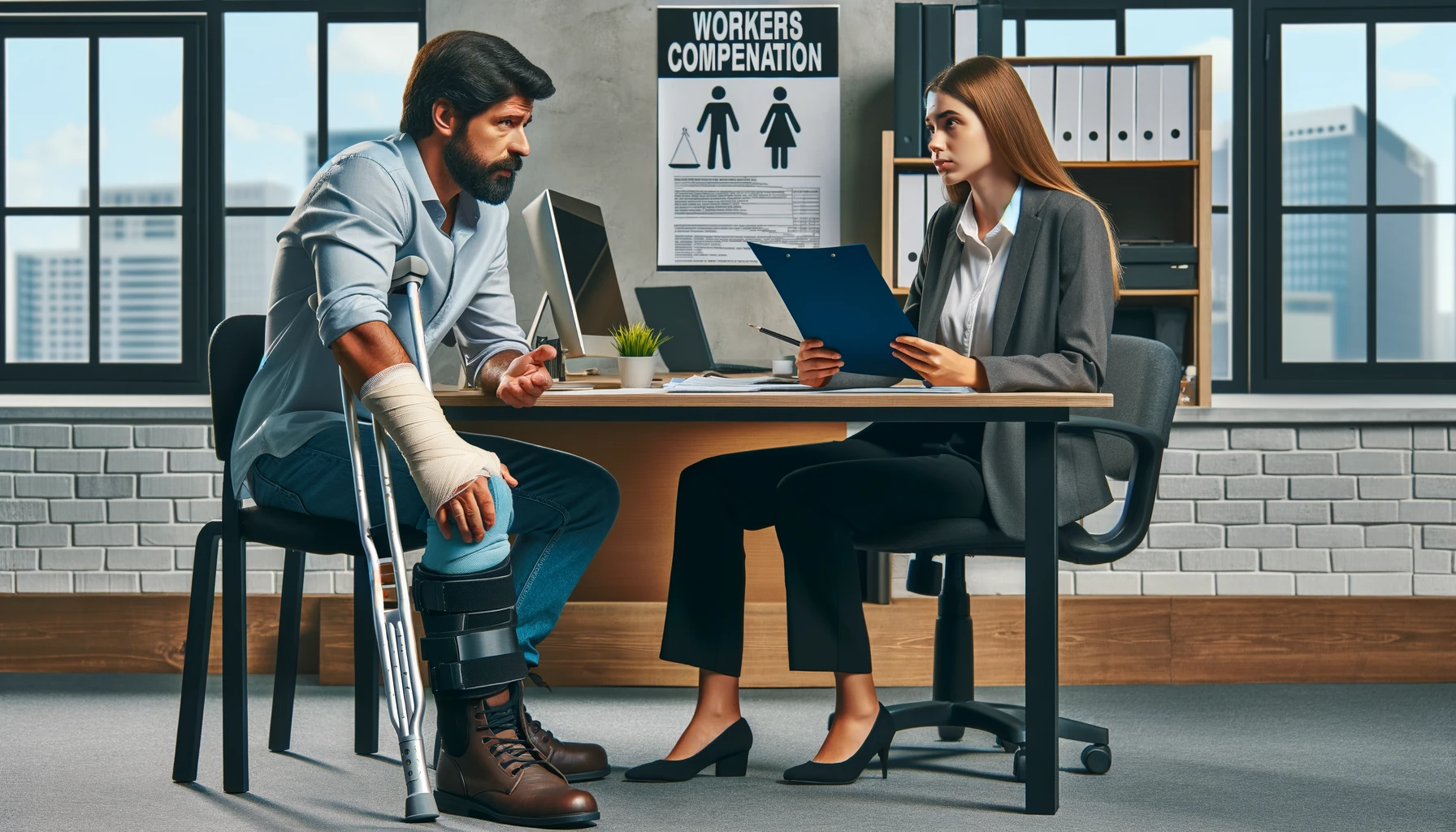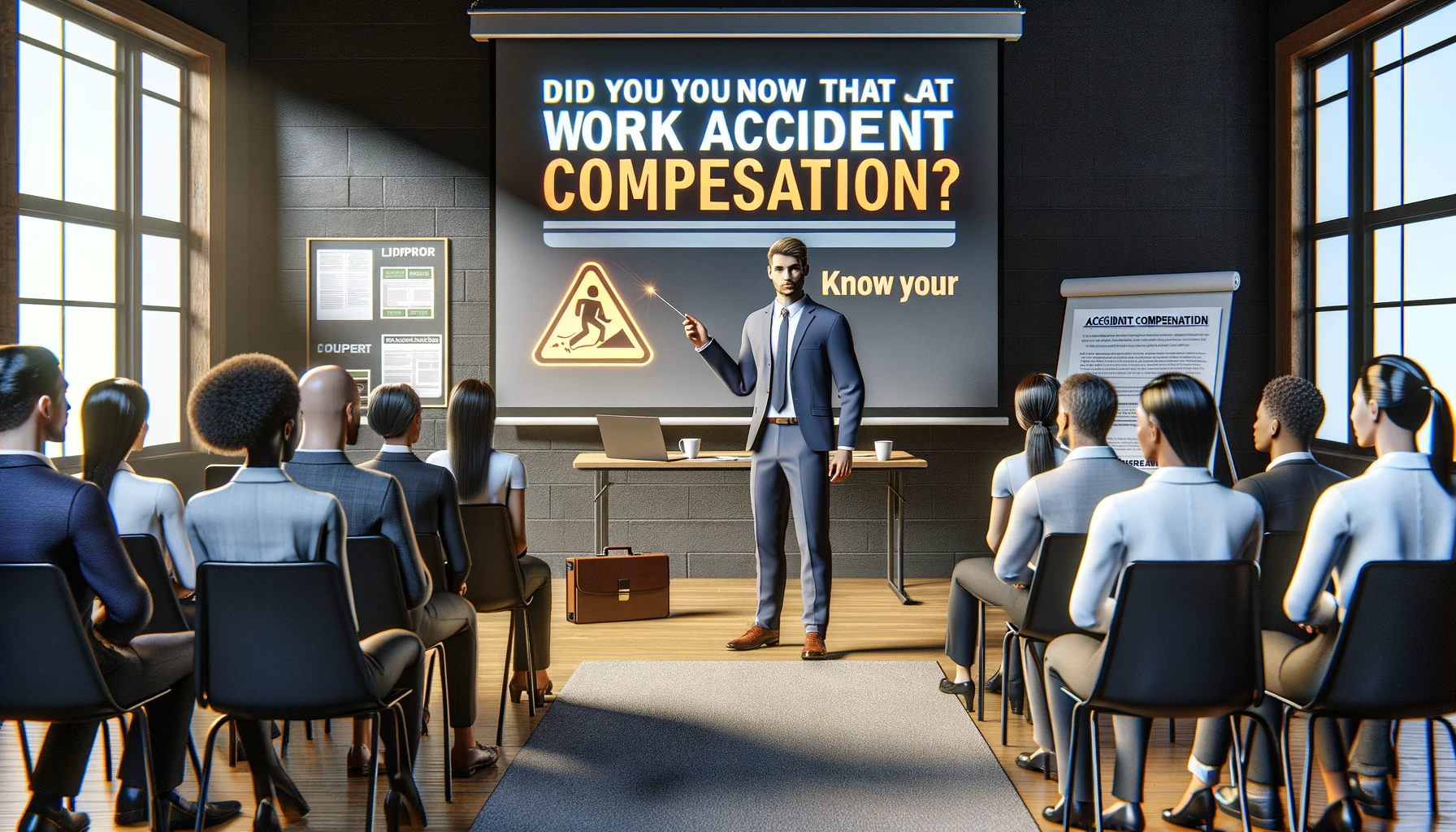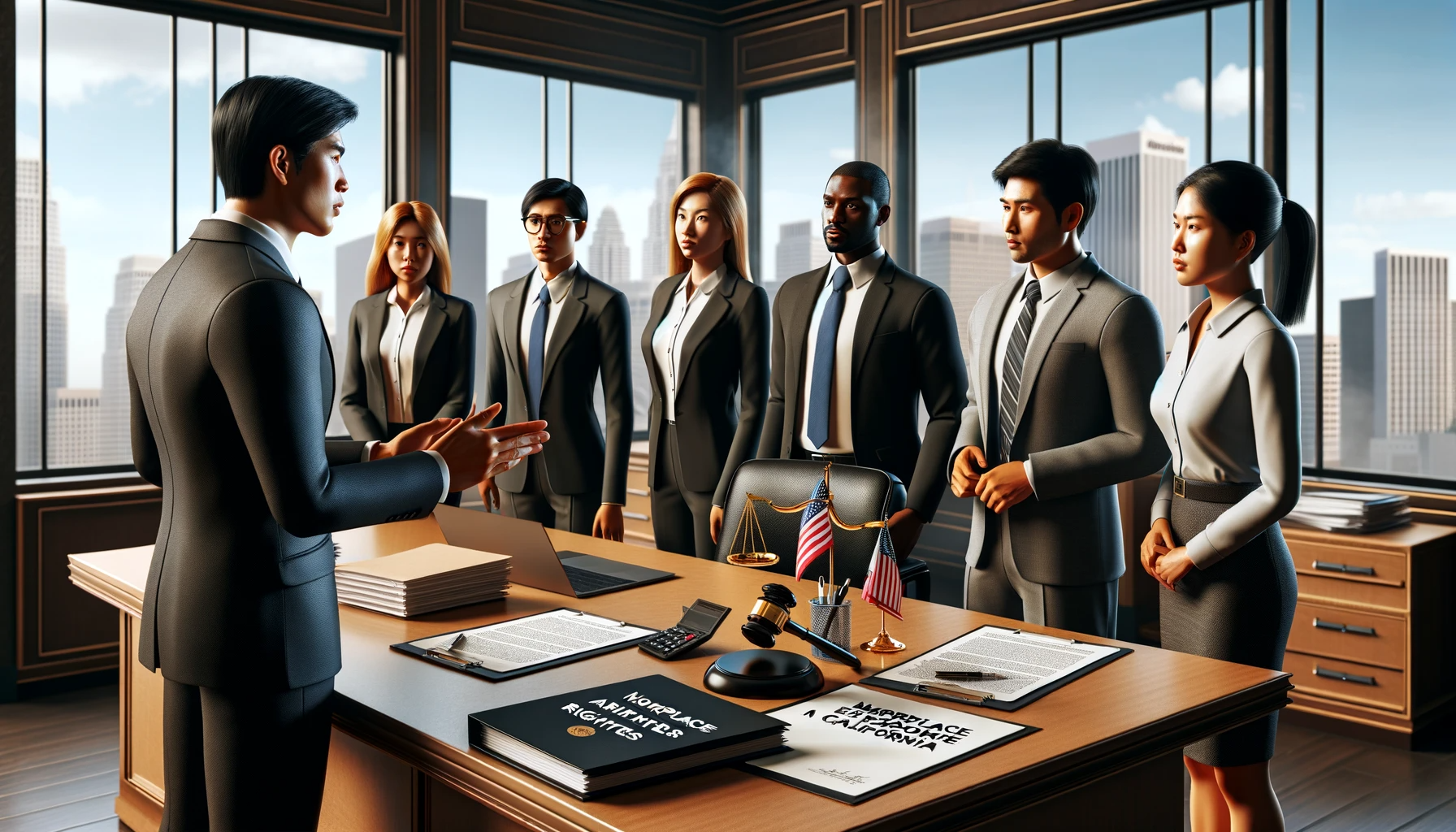When you clock in at your job, the last thing you're probably thinking about is getting hurt, right? But, let's face it, accidents happen. That's where workers' accident insurance comes into play. It's like a safety net that catches you if you fall, quite literally sometimes. But what exactly is it, and how does it work? Grab a cup of coffee, and let's dive into the nitty-gritty of this essential coverage.


Understanding Workers' Compensation Coverage
Imagine you're at work, and oops – you slip and hurt your back. Workers' compensation coverage is that buddy who says, "I got you." It's designed to cover medical bills, lost wages, and even rehabilitation costs for injuries you get while on the clock. Plus, it's not just for slip-and-fall scenarios. It covers a whole range of job-related mishaps.
The Employee Injury Policy Explained
So, what's considered an employee injury? If you're doing your job and get hurt, that's usually covered. We're talking about everything from carpal tunnel syndrome from typing all day to a concussion from a falling object. The policy details can vary, but generally, if you're injured doing work stuff, you're covered.Job-Related Accident Benefits
Here's the good stuff – the benefits. Workers' comp can help with medical expenses, sure, but it also helps you pay the bills if you can't work. Some policies even cover vocational training if you need to switch careers because of your injury. It's like having a financial backup plan when you're dealing with a work oopsie.
Navigating the Workplace Insurance Claim Process
Filing a claim can feel like you're trying to solve a puzzle, but it doesn't have to. The key is to report your injury ASAP and get the paperwork rolling. You'll need to dot your i's and cross your t's with medical records and incident reports. It's a bit of legwork, but it's worth it to get your benefits.Occupational Hazard Insurance and Employer Liability
Now, if you're an employer, this is your jam. Occupational hazard insurance is your protection against being held responsible for workplace accidents. It's a way to manage risks because, let's be honest, even with the best safety measures, accidents can still happen.Work-Related Injury Compensation: Legal Framework
There's a whole legal side to this. Workers' comp laws are there to make sure employees get fair treatment and that employers do their part. It's about balancing rights and responsibilities, so everyone's on the same page when it comes to workplace safety and compensation.Industrial Injury Assurance: A Safety Net for Workers
For more severe injuries that take a longer time to heal, industrial injury assurance steps in. It's like an extra layer of financial protection that ensures you can pay your bills and focus on getting better without the added stress of money woes.On-the-Job Accident Protection: Preventive Measures
Prevention is always better than cure, right? That's why workplaces have safety protocols. Not only do they keep you safe, but they can also keep insurance premiums from skyrocketing. It's a win-win for safety and savings.The Workers' Comp Claim Process in Detail
Filing a workers' comp claim is like following a recipe. You gather all the ingredients (your documentation), follow the steps (the claim process), and hope for a sweet outcome (your benefits). It might take some time, but if you've got everything in order, you're on your way to getting the support you need.Exploring Different Types of Employment Accident Coverage
Just like picking out the right pair of shoes, you want to choose the right coverage for your business. There are different policies out there, and each has its perks. It's all about finding the fit that's best for your team.Labor Insurance Benefits: A Closer Look
Diving into the specifics of labor insurance benefits reveals the essential support it provides to employees. These details matter significantly when it comes to addressing workplace injuries. A critical aspect of labor insurance benefits is the determination of the portion of your salary you'll receive if you're unable to work due to a job-related injury. The exact percentage varies depending on your policy and state regulations, ensuring financial stability during your recovery. Additionally, labor insurance often covers ongoing care, including long-term medical treatment or rehabilitation, ensuring sustained support for injuries with lasting effects. Survivor benefits are another crucial aspect, aiding the family and dependents in case of a fatal workplace accident.The Role of Business Insurance for Employee Accidents
For business owners, employee accident insurance is not just about protecting employees; it safeguards your business from financial hits arising from workplace accidents. Think of it as a protective shield around your company's finances. Business insurance for employee accidents, like workers' compensation, is a vital component of your defense strategy. It shields your business from potential lawsuits and costly settlements resulting from workplace injuries, preserving financial stability.Work Injury Insurance Policy: What Employers Need to Know
Employers, pay heed! Selecting the right work injury insurance policy is as critical as your business plan. It involves balancing costs, understanding coverage, and mitigating risks to shield your business effectively. When evaluating work injury insurance policies, consider factors such as costs, coverage details, and policy limits. Opting for the cheapest policy may leave your business exposed to substantial financial risks during workplace accidents.Understanding Workers' Comp Benefits
Workers' compensation benefits involve a mathematical calculation. It considers factors like your salary, injury severity, and more to determine compensation. Lost wages, medical treatment costs, and vocational training for career transitions are key benefits.Occupational Accident Insurance versus Workers' Compensation
Differentiating between occupational accident insurance and workers' comp is essential. While both offer protection, they have distinct rules and coverage limits. Choosing the right one depends on your unique circumstances.Employee Accident Coverage: Ensuring Fair Compensation
Ultimately, employee accident coverage aims for fairness. It ensures that workplace injuries don't leave you financially strained. It provides support through wage replacement, medical coverage, and vocational training, facilitating a smoother recovery.The Workers' Insurance Claim Procedure
Filing a workers' insurance claim isn't complicated. With the right information and patience, you can navigate the process effectively. Reporting your injury promptly, gathering necessary documents, and following the steps ensure a smooth claim process.Workplace Injury Indemnity and its Impact on the Workforce
Workplace injuries have significant physical, mental, and financial consequences. Workplace injury indemnity alleviates financial worries, ensuring employees can focus on healing without added stress.Conclusion
In conclusion, workers' accident insurance is fundamental for safety, security, and peace of mind in the working world. Whether you're an employee or an employer, it plays a crucial role in protecting and supporting individuals during workplace accidents. Remember, if an accident does happen, a well-established system is in place to assist. Stay safe!Look for an attorney who has the right legal resources for your legal needs.
Contact us here on the Warmuth Law website or through our hotline 888-517-9888.











